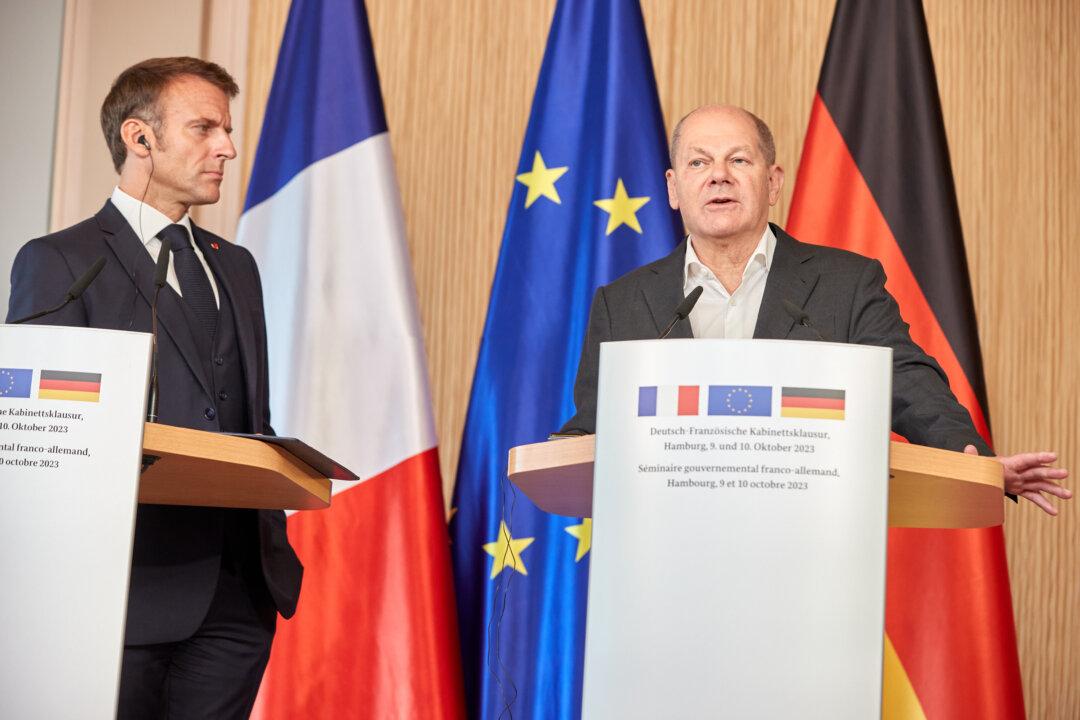Political and military leaders throughout the North Atlantic Treaty Organization (NATO) have broken ranks with French President Emmanuel Macron, rejecting his talk of sending alliance troops to join the fighting in Ukraine.
On Monday, Mr. Macron floated the possibility of sending NATO troops into Ukraine as the country marks two years of fighting against Russian invasion forces. Mr. Macron said the prospect of sending NATO troops into Ukraine was “discussed openly” at a recent meeting of NATO members.





